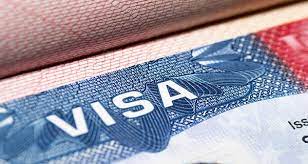Unisa Higher Certificate in Education: Apply Online
| Qualification code: | 90093 |
| NQF level: | 5 |
| Total credits: | 120 |
| SAQA ID: | 101813 |
| APS/AS: | 15 |
| Guidelines: Students who enroll in and complete the Higher Certificate in Education, intending to apply for admission to either the BEd Foundation Phase or the BEd Intermediate Phase, are required to choose MTE1501 (Mathematics 1 for Teachers) as one of the elective modules. The selection of the second elective module depends on the BEd phase pursued after completing the Higher Certificate. For the Foundation Phase, the second elective must be one of the following: ATH1501 or GRT1501. For the Intermediate Phase, the second elective must be chosen from: GCS1501, IED1501, MTE1502, SCC1501, SCC1502, TEC1501, or TEC1502. | |
| Students enrolling in and completing the Higher Certificate in Education with the intention to apply for admission to the BEd Senior Phase and Further Education and Training (Mathematics and English MTE) or the BEd Senior Phase and Further Education and Training (Physical Science and Mathematics PSM) should note that completion of this Higher Certificate will not fulfill the additional mathematics admission requirements for these BEd streams. Students pursuing other BEd Senior Phase and Further Education and Training streams can choose any two elective modules. Admission to the BEd qualifications is contingent upon existing prerequisites and available space within the BEd qualification and/or stream. | |
| Purpose Statement: The purpose of this qualification is to grant access, with a reasonable probability of success, to candidates with potential who may not meet the new minimum entry requirements. The curriculum is designed to equip these students with essential foundational skills for success in the Open Distance Learning (ODeL) environment and potential progression into first-year undergraduate Degree/Diploma qualifications. The learning objectives aim to enhance generic competencies within ODeL, including basic language and learning skills, information management skills, teaching skills, and elective subject knowledge. |
Who Can Register UNISA Education?
- Prospective students are permitted to register only upon receiving confirmation from Unisa that their admission application has been approved. Unisa retains the authority to refrain from processing or canceling your registration in the event of incorrect admission to a qualification. Admission to an alternative qualification is not guaranteed and is contingent upon meeting admission criteria and the availability of space.
- Returning students seeking re-registration can enroll for the 2023 academic year during the designated registration period.
PLEASE NOTE:
Should you wish to start a new qualification, please Apply Online for the alternative qualification.
All communication sent to you after the initial study package (with the exception of study guides) will be sent electronically to your myLife e-mail account (eg follow-up tutorial letters, examination timetables and results, financial statements). You will no longer receive such communication in printed format.
How to Choose Your Modules
Each Unisa qualification is structured in such a way that you need to pass a certain number of modules and NQF level credits within a certain amount of time in order to graduate. You must pass a minimum number of credits/modules annually so that you are able to re-register and continue with your qualification:
Requirements for Credit Allocation:
- In your first year of study, a minimum of 36 NQF credits is required, distributed across 3 modules with each module carrying 12 credits.
- For your second year and beyond, a minimum of 48 NQF credits is mandatory, spread across 4 modules with each module carrying 12 credits.
Limits on Semester Registration:
- Registration for a semester must not exceed 60 NQF credits, which corresponds to 5 modules, each with 12 credits.
- For year modules, the maximum allowable credits is 120 NQF, equivalent to 10 modules with 12 credits each.
- The maximum credit limits mentioned above exclude supplementary and/or aegrotat examinations from a previous semester.
- Modules pursued for non-degree/non-diploma purposes are also considered when calculating the maximum allowed credits.
Consideration for Time Management:
- When selecting modules, it is crucial to consider your available time, as this significantly influences your academic performance.
Approximately,
- Semester modules require a commitment of 6 to 8 hours per week.
- Year modules necessitate a weekly dedication of 4 to 6 hours.
Click here for more information on managing your studies.






